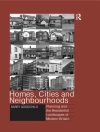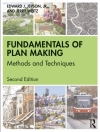Much of that growing demand for coastal recreation and tourism has focused on countries in South and Southeast Asia in the tourism megaregion that this book refers to as Tropical Asia. As such, the recreational disturbance of shorebirds in Asia is a serious conservation issue, at a time when populations of both migratory and non-migratory species of shorebirds are threatened and declining because of the loss of coastal habitat and increased human disturbance. Despite global awareness about the impacts that the growth of coastal recreation and tourism across Tropical Asia is likely to be having on threatened and endangered migratory and resident shorebird species of the coastal zones of the East Asian– Australasian Flyway, less than 3% of the published peer-reviewed research into the recreational disturbance of shorebirds addresses coastal zones of Tropical Asia. This situation points to a significant knowledge gap regarding the impacts of human recreation on shorebirds in the Tropical Asian region. In contrast, almost three quarters of the peer-reviewed articles that report recreational disturbance research and management strategies focus on coastal zones in North America (36%), Oceania (20%), and Europe (20%). For those reasons, the quantitative systematic literature review and research case study from Sri Lanka reported in this book provide a call to action and recommendations for both management approaches grounded in the international literature and a research agenda that should be implemented in the coastal zones of Tropical Asia.
Tabela de Conteúdo
Chapter 1.- Shorebirds and Recreation in Coastal Zones (Greg D. Simpson).- Chapter 2. Interrogating the Recreational Disturbance Literature (Greg D. Simpson).- Chapter 3. Main Sources of Recreational Disturbance (Sumudu Marasinghe).- Chapter 4. How Recreational Disturbances affect Coastal Birds? Some Case Studies from Sri Lanka (Sumudu Marasinghe).- Chapter 5. Setting the Management and Research Agendas (David Newsome).
Sobre o autor
Priyan Perera is a Professor in Forestry and Environmental Science at the Department of Forestry and Environmental Science, University of Sri Jayewardenepura, Sri Lanka. His research interests are mainly in the interface between natural sciences and social sciences and related to sustainable tourism, wildlife tourism in protected areas, recreation ecology, human dimensions in wildlife management, and environmental sustainability. Priyan is also an Honorary Research Fellow in Environmental and Conservation Sciences, Murdoch University, Australia.
Sumudu Marasinghe is a Graduate Research Assistant in Environmental Management at the Department of Forestry and Environmental Science, University of Sri Jayewardenepura, Sri Lanka with research interests in recreation ecology and assessment of recreational disturbances on coastal birds.
Greg D. Simpson is an emerging researcher in the Environmental and Conservation Sciences at Murdoch University. Grounded inthe duality of his studies (BA Sustainable Development and BSc Honours in Environmental Science), Greg’s research interests reflect his commitment to the protection and conservation of urban and peri-urban nature and his passion for connecting people to nature through nature-based recreation and tourism with the goal of enhancing the biodiversity and liveability of coastal environments. Greg strives to deliver his research aligned to the Harry Butler Institute philosophy of championing a research space where community, business and biodiversity can co-exist. Greg advances that ethos through equitable research collaborations with community members, students, industry partners, and his growing academic network.
David Newsome is an Emeritus Associate Professor in Environmental and Conservation Sciences at Murdoch University, Western Australia. His research interests focus on nature based tourism with a particular emphasis on the sustainability of tourism in national parks and nature reserves, evaluation of the quality of ecotourism operations, sustainable trail management, geological tourism and wildlife tourism. David is a member of the IUCN World Commission on Protected Areas and has a particular interest in undertaking projects that will aid in the development of sustainable tourism in the Asian region.












